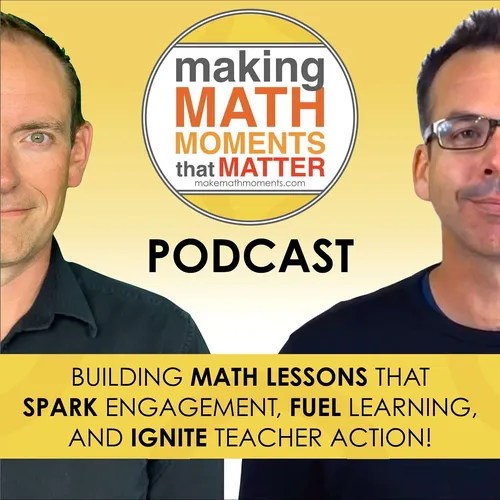Rich Tasks vs. Gradual Release: Do We Have to Choose?
- Author
- Kyle Pearce & Jon Orr
- Published
- Mon 01 Sep 2025
- Episode Link
- None
One of the most frequent questions we hear from district and school math leaders is:
“How do I convince math educators to shift from always using the Gradual Release model to lessons that begin with rich math tasks?”
This episode is inspired by a recent conversation with a district leader guiding a math task force. While some colleagues leaned on the Gradual Release of Responsibility model—“I do, we do, you do”—she wanted to prioritize curiosity, problem solving, and mathematical reasoning up front. The tension? Research on direct instruction, particularly Hattie’s work, is often misinterpreted as a call to always begin math lessons with direct modeling.
This is not about replacing direct instruction in math class with inquiry. It’s about designing math lessons where fluency, reasoning, communication, and conceptual understanding all have a place—and where students begin with reasoning and end with precision.
Listeners will hear:
- Why problem-based lessons and Gradual Release are not an either/or choice
- How the math three-part lesson (Minds-On, Action, Consolidation) positions explicit teaching strategically
- What the research really says about direct vs. dialogic instruction from John Hattie.
- Why starting with student sense-making deepens conceptual understanding and retention.
Not sure what matters most when designing math improvement plans? Take this assessment and get a free customized report: https://makemathmoments.com/grow/
Math coordinators and leaders – Ready to design your math improvement plan with guidance, support and using structure? Learn how to follow our 4 stage process. https://growyourmathprogram.com
Looking to supplement your curriculum with problem based lessons and units? Make Math Moments Problem Based Lessons & Units
Love the show? Text us your big takeaway!
Get a Customized Math Improvement Plan For Your District.
Are you district leader for mathematics? Take the 12 minute assessment and you’ll get a free, customized improvement plan to shape and grow the 6 parts of any strong mathematics program.
Take the assessment
Are you wondering how to create K-12 math lesson plans that leave students so engaged they don’t want to stop exploring your math curriculum when the bell rings? In their podcast, Kyle Pearce and Jon Orr—founders of MakeMathMoments.com—share over 19 years of experience inspiring K-12 math students, teachers, and district leaders with effective math activities, engaging resources, and innovative math leadership strategies. Through a 6-step framework, they guide K-12 classroom teachers and district math coordinators on building a strong, balanced math program that grows student and teacher impact. Each week, gain fresh ideas, feedback, and practical strategies to feel more confident and motivate students to see the beauty in math. Start making math moments today by listening to Episode #139: "Making Math Moments From Day 1 to 180.
